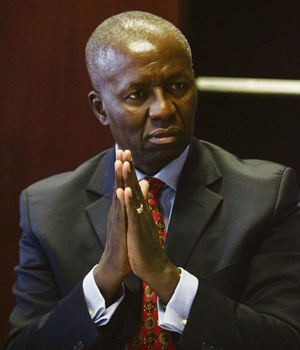
The appeal against the dismissal of specific damages claims by the Polokwane High Court in the case of Komape v Minister of Basic Education is set to be heard in the Supreme Court of Appeal early next month.
Ultimately, this appeal is about the extent to which the constitutional mores have sufficiently permeated the country’s legal culture and translated into recognisable legal norms capable of affirming the dignity and human rights of every person and holding public officials to an appropriate standard of accountability.
In January 2014, Michael Komape, a five-year-old boy who was on his fourth day of Grade R at Mahlodumela primary school in Limpopo, needed to use the toilet.
The pit toilets at the school were dilapidated and full of human waste.
Michael used the toilet unaccompanied, fell into the pit toilet and drowned.
Michael’s mother, Rosina Komape arrived at the school later that day to search for her son.
She was not told that Michael’s last known whereabouts was at the toilets.
Instead, she was left largely unsupported to search for him.
She eventually discovered his little hand protruding from the pit toilet and fainted from the shock.
When Michael’s father, James Komape, arrived at the school and requested help to remove his son’s body from the pit toilet, officials refused to assist him, telling him that it was too late to save Michael anyway.
Komape was forced to wait for emergency services for several hours while Michael’s body remained in the pit.
Read: Family of boy who drowned in pit latrine may appeal judgment
A friend who had been accompanying the father took photographs of the state of the pit toilets with his phone while they waited, only to have his phone confiscated by school officials and the photos deleted because the officials “did not want the incident to be spread”.
Given the known state of the pit toilets by education authorities, there ought to have been, at the very least, some protocol in place for supervising the littlest of pupils using the toilets.
Moreover, the circumstances of Michael’s death and the aftermath paint a picture of not only negligent and callous public officials, but also of officials who were deliberately obstructive and then attempted to conceal evidence of the circumstances of Michael’s death.
The Komape family therefore instituted a delictual claim against education authorities for the wrongful and negligent death of Michael.
This included a claim for emotional shock that family members had experienced as a result of and the manner of his death.
The claim also sought to develop the common law by claiming for the grief suffered by the family.
In the alternative to the claim for grief, the family claimed constitutional damages.
Other claims related to medical expenses for the family, funeral expenses and loss of earnings in respect of Rosina Komape who stopped working when her child died.
The high court judgment acknowledged that government had “failed to perform certain obligations towards learners from schools in rural Limpopo including Michael, in particular, which in his case, resulted in his death”.
Despite these findings, the court surprisingly dismissed the main damages claims – including for emotional shock and for grief or constitutional damages.
It issued, instead, a structural order requiring that government provide an audit of the number of pit toilets in the province, together with a detailed plan for the provision of safe and hygienic toilets at schools.
The dismissal of the claim for emotional shock is inexplicable. Our courts have previously awarded such damages in comparable circumstances.
Significant too is that prior to the trial, government had already conceded liability for this head of damages.
The only issue that was left for the court to determine was the amount of damages to be paid to the family.
The more complex and seemingly controversial issue is whether the courts should develop the common law to recognise grief, or award constitutional damages to the family.
To do so according to the high court would be to “overcompensate the family” and would also open the floodgates to “limitless liability”.
The structural order can potentially vindicate the rights of learners since it seeks to provide a systemic solution to the eradication of pit toilets in Limpopo in a context where at least 3 199 illegal pit toilets still exist nationwide and continue to result in the death and injury of learners.
Read: 'We have no money to bury him'- Family of boy who died in pit toilet
This structural relief, however, fails to vindicate the rights of Michael and his family, including their rights to dignity and Michael’s right to life and an education.
Each distinct harm necessitates its own specific relief to vindicate the rights violation.
Moreover, there is a concomitant obligation on public officials to be held accountable to an appropriate standard of care both in terms of the common law and the Constitution.
To not do so in the context of this case would be to fail to hold public officials accountable for grossly negligent and deliberately wilful conduct.
It is also hard to conceive how awarding damages for both emotional shock and grief would be over compensation.
The one is a recognition of the shock experienced by the family at Michael’s death and the horrendous manner of his death, the other a recognition of the mourning of the loss of a child whose death ought to have been preventable.
There are noteworthy parallels in the Komape case and that of the Life Esidimeni case where 144 mentally ill patients died as a result of their arbitrary movement to inadequate and ill-equipped non-governmental organisations.
The Gauteng government later conceded liability in respect of the deaths and torture of mental healthcare users.
They argued that this was in respect of damages for pain and suffering and emotional shock as well as estimated funeral expenses.
It tendered R200 000 in to each claimant, but asserted that it was not liable for constitutional damages since the violation of the various constitutional guarantees could not be couched in common law terms.
Retired Deputy Chief Justice Dikgang Moseneke, who presided over the arbitration, rejected government’s arguments, stating: “It would be strange, if not bizarre, if a claim under the supreme law would be denied vindication simply because it could not fit into the common law framework. If that were so, the constitutional remedies would be granted only subject to the common law. It is important to restate that the common law is subject to the Constitution and not the other way around.”
Each claimant was therefore awarded a further R1 million as compensation for constitutional damages.
In a context where we require that our public administration be governed by constitutional values and be held accountable to such values, the common law cannot remain static but must be developed depending on the facts of a case.
A more compelling instance than this is hard, if not impossible, to imagine.
Veriava is head of the basic education rights programme at Section27
TALK TO US
Is this Rosina and James Komape’s last hope of getting justice for their son Michael?
SMS us on 35697 using the keyword MICHAEL and tell us what you think. Please include your name and province. SMSes cost R1.50. By participating, you agree to receive occasional marketing material




 Publications
Publications
 Partners
Partners









